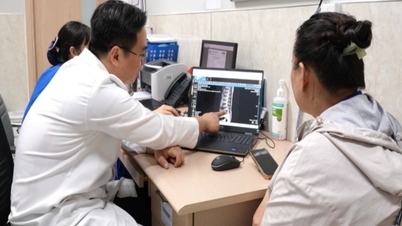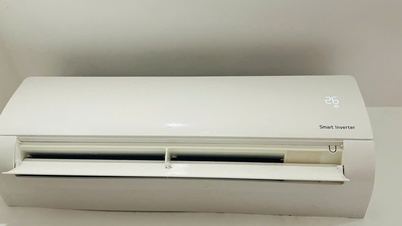To effectively control weight, doctors often recommend adjusting diet, exercising regularly and changing to a healthy lifestyle.
 |
| Effective obesity treatment requires a combination of accurate body composition assessment, especially with tools like InBody, along with proper nutrition and sustainable lifestyle changes. |
At the scientific workshop “Multimodal Treatment of Obesity” organized by TAMRI, doctors shared the latest updates in the assessment and treatment of obesity, including methods to determine body fat, muscle, bone, water mass and appropriate nutritional interventions.
According to Dr. Vo Tran Nhu Thao, Weight Loss Center, InBody index is an important tool to support effective weight control. Unlike the traditional BMI index based only on height and weight, InBody provides detailed data on the percentage of fat, muscle, water in the body, as well as visceral fat. These are factors that play an important role in comprehensively assessing the health of overweight and obese people.
In addition to InBody, other modern methods such as X-ray bone density measurement (DEXA) and CT/MRI scans also help determine visceral fat, but are expensive and come with the risk of radiation exposure.
InBody is a non-invasive measuring device that provides fast and accurate results, especially useful in monitoring the progress of weight loss treatment. Through these indicators, doctors can monitor changes in visceral fat and muscle mass, thereby adjusting the treatment regimen to suit each patient.
Notably, InBody also helps detect “skinny obesity”, people with normal weight but high body fat percentage, potentially at risk of cardiovascular and metabolic disorders. In addition, this device also helps detect muscle loss and fat gain in the elderly or people with chronic diseases such as diabetes, thereby adjusting diet and exercise more appropriately.
Dr. Thao emphasized that one should not rely solely on BMI to assess obesity, as it may miss cases of muscle atrophy but hidden fat accumulation. Combining the InBody index with clinical assessment will help diagnose more accurately and comprehensively, thereby building an effective and safe treatment regimen.
Regarding nutritional intervention in the treatment of obesity, Dr. Dao Thi Yen Thuy, Head of the Department of Nutrition and Dietetics, said that obesity is due to excess fat, not necessarily due to a high BMI. Simply put, weight loss is fat loss, not blind weight loss.
The core principles in nutritional treatment for overweight and obese people are to reduce energy intake, increase energy expenditure and maintain muscle mass.
However, popular diets today such as low-carb, keto, Mediterranean or LED (low energy diet) if applied incorrectly can easily lead to nutritional imbalance, lack of energy and essential micronutrients, and even affect long-term health. When the diet is not maintained, weight can quickly increase again.
According to Dr. Thuy, proper dieting does not mean fasting or skipping meals. Instead, you need to eat slowly, chew thoroughly, focus on breakfast and lunch, and gradually reduce your portion in the afternoon and evening. Each day, you should reduce about 500 kcal compared to your normal needs.
Starch is maintained at a low average level, sugar and fat are limited, ensuring adequate protein supply, increasing low-starch green vegetables, low-sugar fruits, low-fat milk without sugar and drinking enough water from 1.5 to 2 liters/day. Snacks should also choose healthy, low-energy foods such as low-sugar fruits, vegetable soup, boiled tubers or sugar-free milk.
In summary, effective obesity treatment requires a combination of accurate body composition assessment, especially with tools like InBody, along with appropriate nutrition and sustainable lifestyle changes.
Applying the correct method will help patients lose fat safely, maintain health and prevent long-term complications.
Source: https://baodautu.vn/can-thiep-dinh-duong-trong-dieu-tri-thua-can-beo-phi-d328652.html




![[Photo] Parade to celebrate the 50th anniversary of Laos' National Day](/_next/image?url=https%3A%2F%2Fvphoto.vietnam.vn%2Fthumb%2F1200x675%2Fvietnam%2Fresource%2FIMAGE%2F2025%2F12%2F02%2F1764691918289_ndo_br_0-jpg.webp&w=3840&q=75)


![[Photo] Worshiping the Tuyet Son statue - a nearly 400-year-old treasure at Keo Pagoda](/_next/image?url=https%3A%2F%2Fvphoto.vietnam.vn%2Fthumb%2F1200x675%2Fvietnam%2Fresource%2FIMAGE%2F2025%2F12%2F02%2F1764679323086_ndo_br_tempimageomw0hi-4884-jpg.webp&w=3840&q=75)





































































































Comment (0)